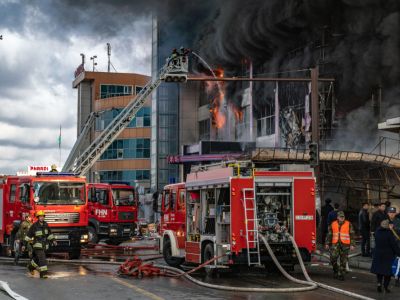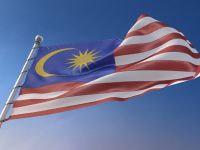Prime Minister Tony Blair embarked on a diplomatic shuttle Wednesday to shore up a US-led coalition against terrorism, as Britain cracked down on extremist groups that have set up strong support bases there.
He said he wanted to help "set an agenda" for the international community, both in chasing those responsible for the bloody suicide plane attacks in the United States and in tackling the whole apparatus of mass terrorism.
"The limits on the way these people operate are not governed by a sense of morality at all," he told reporters in Downing Street.
"If they could have killed even more people in America they would have. The limits are merely technical and practical."
Earlier, his finance minister, Gordon Brown, urged concerted action to cut off the supply of funds to terrorists.
Officials have already closed down a suspicious bank account in London, and Brown urged other nations, especially those with strong banking secrecy codes such as Switzerland, to follow suit.
He said financial institutions had also received a list of individuals who the government wants investigated in relation to last week's attacks in New York and Washington.
"We want joint action to cut off the supply of funds to terrorists," Brown told GMTV television.
"They're being financed somewhere and get their money through bank accounts which we can stop."
The devastating September 11 strikes have left thousands of people dead and sparked Washington -- soon followed by London -- into declaring "war" against terrorism.
Blair was due Wednesday to fly to Germany for talks with Gerhard Schroeder and to Paris on Thursday for a breakfast meeting with French President Jacques Chirac.
Later Thursday, he flies to New York to see for himself the devastation of the attack on the World Trade Center.
He then has talks and dinner with US President George W. Bush in Washington before travelling Friday to Brussels for an emergency EU summit.
Earlier this week he met Italian Prime Minister Silvio Berlusconi, and has contacted leaders in China, Russia, Africa and Arab nations.
As well as seeking to forge an international consensus, Blair's government is also considering how to tighten measures at home.
According to reports, he will be given a report this week on wider measures to tackle the threat of Islamic and other terrorist groups.
Sweeping powers allowing authorities to arrest and detain people suspected of terrorist activity came into effect earlier this year.
They include a ban on 21 organisations -- 16 of them Islamic -- notably the Al-Qaeda network of Osama bin Laden, the chief suspect for the attacks on New York and Washington.
According to The Times daily, officials are considering adding to that list in the next few days.
Other measures understood to be on the table include a wider use of modern technology to defend airports, the possible introduction of identity cards and ways of combating money-laundering.
The strategy would sit alongside a proposed new EU-wide arrest warrant and fast-track procedures to extradite terrorist suspects.
Britain has two million Muslims in a population of some 60 million, and the vast majority have condemned last week's attacks.
However, it is also a base for many fundamentalist outfits with virulently anti-American views.
They include Al-Muhajiroun, founded by Sheikh Omar Bakri Mohammed, who has said bin Laden's cause is a just one.
Another outspoken British-based Islamic cleric is Abu Hamza al-Masri, whose Supporters of Sharia calls on true Muslims to take up arms in defence of their religion.
Neither group is on the proscribed list.
Home Secretary David Blunkett was also Wednesday proposing tougher measures to tackle illegal immigrants trying to make their way across the Channel from France.
Although that issue is a long-running one, Downing Street said it had been given "an added point" by last week's attacks -- LONDON (AFP)
© 2001 Al Bawaba (www.albawaba.com)









